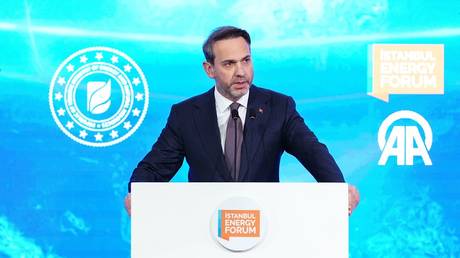ARTICLE AD BOX
Kiev’s sanctions on Russian oil have impacted Slovakia and Hungary
Hungary and Slovakia have requested that the European Commission intervene over Ukraine’s decision last week to block the pipeline transit of Russian crude oil.
While the EU has sanctioned imports of Russian crude to Germany and Poland, Slovakia and Hungary have received exemptions. Last week, however, Ukraine cut off the flow of oil, citing its own sanctions against Russian energy giant Lukoil.
“I spoke with the Ukrainian foreign minister yesterday; he said they allow every oil transfer through, but it’s not true,” Hungarian Foreign Minister Peter Szijjarto said in Brussels on Monday.
Szijjarto described Kiev’s actions as “hostile,” especially since Ukraine imports electricity from Hungary. He added that Budapest and Bratislava have requested consultations with Brussels on the matter. Slovakian Foreign Minister Juraj Blanar has confirmed this.
“The commission has three days to carry out our request, after which we will bring the issue to court,” said Szijjarto. If Kiev refuses to resume oil transit, the EU will be justified in suspending certain clauses of Ukraine’s association agreement, he added.
The EU formally approved the start of membership negotiations with Ukraine last month, as a symbolic message of support to Kiev in its conflict with Moscow.
Read more Russia and EU state working to resume oil supplies – media
Russia and EU state working to resume oil supplies – media
On Saturday, Slovakian Prime Minister Robert Fico called his Ukrainian counterpart Denis Shmigal to complain about the “senseless” sanctions that may leave Bratislava 40% short of the oil it needs. Moreover, the shortages could force Slovnaft to stop deliveries to Ukraine, which account for 10% of Kiev’s oil consumption.
“Slovakia does not intend to be a hostage to Ukrainian-Russian relations,” Fico said.
Ukraine imposed sanctions on Lukoil on June 24, including the freezing of assets, limiting trade operations, and “partial or complete cessation of resource transit.” The oil stopped flowing on July 17, according to Hungary’s MOL, which also owns Slovnaft.
Officially, Kiev seeks to deprive Moscow of oil revenue that could be used to pay for the Russian military, even though Ukraine itself is getting a cut from transit fees. Ukrainian lawmaker Inna Sovsun has suggested to Politico that the embargo has a secondary purpose: to pressure Hungary.
“We have really tried all the diplomatic solutions, and they never worked,” said Sovsun. “So it seems like we have to find some other approaches in how to talk to them.”
Prime Minister Viktor Orban’s government has vocally opposed the EU policy of sending money and weapons to Ukraine and vowed to block its membership in the bloc as well as NATO.
.png)
 4 months ago
3
4 months ago
3








 English (US)
English (US)